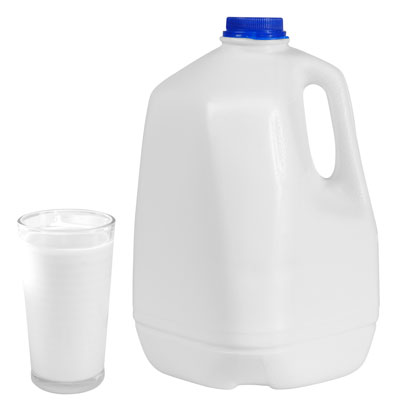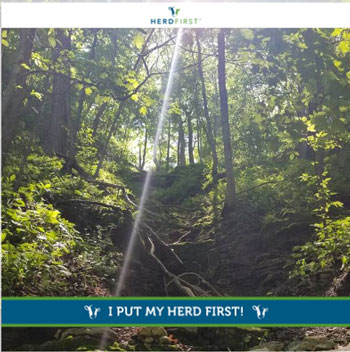
As dairy producers, industry members, and associates, we all know about the benefits of milk. In fact, we are blessed as members of this industry to produce a product that we can be proud of for its nutritional profile and the gap it fills in so many individuals’ diets.
Parallel to this truth, this summer the industry has experienced the continuation of one of the worst milk price depressions in years, and there’s no doubt that farm country is hurting. Plenty has been said about this topic, but it’s not what I wanted to focus on during this blog.
I’d rather focus on some of the movements that have come out of this feeling of discouragement. Take, for example, the #10gallonchallenge that our blogger Darleen Sichley highlighted three weeks ago.
If you’re on Facebook, you’ve probably seen Cargill’s recent efforts to support this same mission. Until October 31, 2018, Cargill will donate three servings of milk to The Great American Milk Drive for every person who uses the HerdFirst Facebook frame.

As many as 100,000 servings will be donated by Cargill during this time period, but perhaps the better story lies in where the milk is going. Since its inception, The Great American Milk Drive has delivered around 28 million servings or 1.8 million gallons of milk to Feeding America food banks.
The U.S. hunger-relief organization says that milk is one of its most requested items. Because of partnerships like this one, we can help provide milk for a group of individuals who both need and want our product.
Even as dairy country continues to struggle, and no doubt that struggle is real, our industry and our industry’s friends have reached out to help find solutions for those even less fortunate.
That’s a story I want to be part of. Go to https://milklife.com/give to learn more about The Great American Milk Drive and to donate directly, or you can learn more about Cargill’s donation at www.putyourherdfirst.com.

The author is an associate editor. She covers feeding and nutrition, youth activities, and heads up the World Dairy Expo Supplement. Maggie was raised on a 150-cow dairy near Valley Center, Kansas, and graduated from Kansas State University with degrees in agricultural communications and animal sciences.







